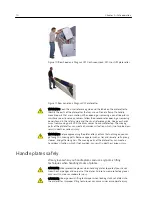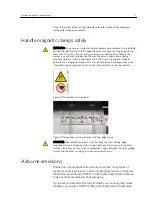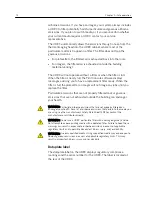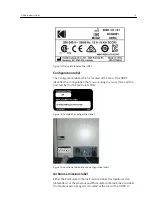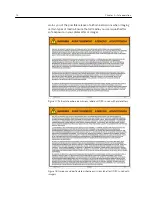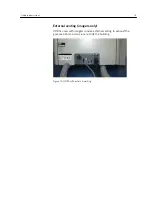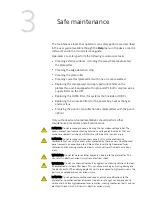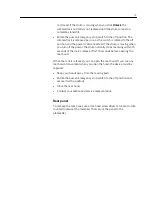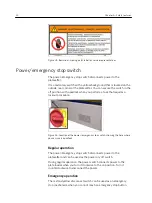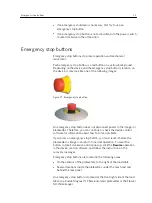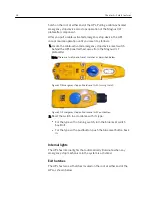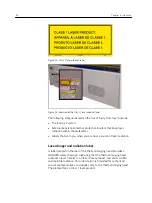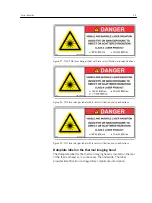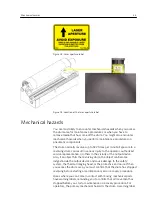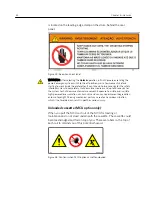
4
Safety features
The platesetter includes safety features that reduce the risk of injury
from laser, mechanical, and electrical hazards. The features include a
safety interlock system, a power/emergency stop switch, emergency
stop buttons, and a shutoff valve for the compressed air supply system.
Platesetter options may have additional built-in safety features.
Safety interlock system
The output device is equipped with a safety interlock system that
reduces your exposure to hazards. Safety interlocks allow you to release
panel latches only when it is safe to access the areas that the panels
cover.
Important: The safety interlock system is a critical safety feature. You will
jeopardize your safety and the safety of others in the vicinity of the device if you
tamper with it in any way.
The platesetter uses various types of interlocks to reduce the risk of
injury from the following kinds of hazards.
●
Write laser hazards (the invisible laser beam that exposes the
media)
●
Focus laser hazards (the visible laser beam that keeps the write laser
focused on the media during exposure)
●
Mechanical hazards (moving parts, such as the drum and carriage)
If you open or remove an interlocked panel while the platesetter is
operating, the platesetter shuts down laser sources and halts all
mechanical activity. A message indicating a problem may appear in the
device control software. You are prevented from operating the
platesetter until all panels are closed and locked.
On platesetters with automatic loading options, the door covering the
plate storage area has a local interlock. If you open it to load plates, the
platesetter continues imaging (the laser and drum are not shut down),
but the plate picking mechanism does not move until the door is closed
again.
The following label identifies interlock switches that are relied upon for
laser safety:
Summary of Contents for Magnus VLF Q2400
Page 2: ......
Page 4: ......
Page 6: ...vi Magnus VLF Q2400 Q3600 Platesetter Safety Guide for Operators ...
Page 14: ...8 Chapter 1 Introduction to safety information ...
Page 22: ...16 Chapter 2 Safe operation ...
Page 26: ...20 Chapter 3 Safe maintenance ...
Page 45: ...Figure 49 High touch current label Electrical hazards 39 ...
Page 46: ...40 Chapter 5 Hazards ...
Page 47: ......




